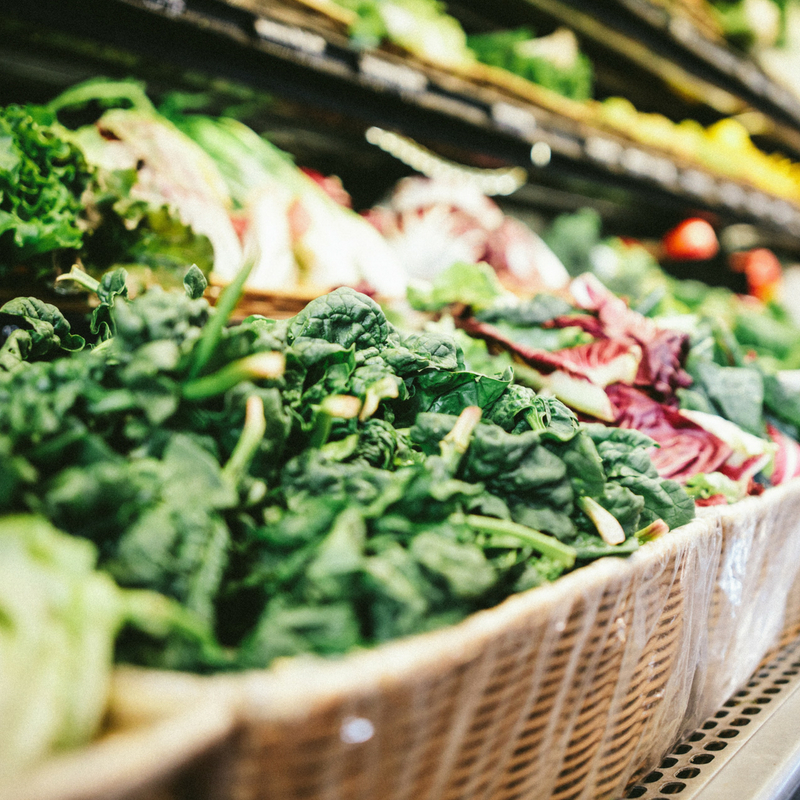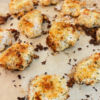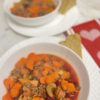 Want to take care of your hair better?
Want to take care of your hair better?
This sounds like a late night infomercial, but for many dudes out there hair loss is an unfortunate inevitability! Now we all know the Bruce Willis types who can really pull off the bald look, but if you’re not the bald is beautiful kind of guy and want to keep your lovely locks for as long as possible and prevent hair loss, read on!
Male pattern baldness, also called androgenic alopecia, is the most common type of hair loss in men. Statistics show that by the age of 35, around 66% of men see a considerable amount of hair loss, and by the age of 55, around 85% are considered bald.
Most hair loss can be attributed to from genetics (thanks mom and dad!), but many men (and women too) suffer hair loss from conditions like autoimmune disorders, diabetes, vitamin deficiencies, stress, and lack of sleep. The good news is that hair loss may be able to be helped by being mindful of the food you put in your mouth.
For you guys (and girls) who want to keep the hair you have on your head here are 7 awesome nutrients that you can eat more of that may help to keep the hair on your head happier and thicker.
1. Iron
Iron deficiency hair loss can look like traditional male- and female-pattern hair loss. According to one study low iron make not cause permanent hair loss, but rather it causes temporary hair loss which mimics a similar fashion to genetic balding.
Iron helps circulation, and helps the body deliver oxygen to cells through the blood. When your iron is low, your body will not efficiently or optimally crazy oxygen to your scalp possibly, which deprives hair follicles.
Add to your diet:
Leafy greens, egg yolks, and (some) clean read meat to your diet to help prevent a possible iron deficiency. Don’t forget green veggies have iron in them too- but you’ll want to add some vitamin C alongside them in the meal (think spinach with lemon juice) to boost absorption.
2. Zinc
Zinc is an essential mineral that is required for many enzymes, and is needed for protein synthesis and cell division in the body- it’s also key for a healthy immune system. Zinc plays a key role in cell growth and development – which can affect cells that replicate quickly, like skin, nails and hair. A study of 312 patients with male pattern hair loss had lower zinc concentrations as compared too their healthy counterparts.
Another study showed that an oral zinc supplementation for 12 weeks in 15 alopecia areata patients who had low serum zinc levels had a positive therapeutic for 66% of patients.
Add to your diet:
Lamb, grass fed beff, pumpkin seeds, chickpeas – they’re all sources of zinc.
3. Essential Fatty Acids (Omega 3 & 6)
Omega-3 and Omega-6 Fatty Acids are called essential fatty acids because our bodies cannot produce them, and therefore require consumption from food to maintain adequate levels in the body. Inadequate levels of essential fatty acids may contribute to premature hair loss (it may also contribute to bumps on skin and other things too).
Here’s why these two essential fatty acids matter for your hair: Omega-6 fatty acids promote hair growth and support skin cell renewal, while Omega-3 fatty acids promote moisture for skin and hair follicles. These two – Omega 3 and 6 may also help to reduce total inflammation- also key for maintaining healthy hair.
Add to your diet:
Salmon, mackerel, tuna, white fish, sardines, egg yolks, walnuts, hemp seeds, flax and chia seed are rich in healthy fatty acids.
4. Magnesium
Another important that may help to promote healthy hair is magnesium (magnesium is one of my absolute FAVE nutrients as well). Magnesium plays a key role in over 300 essential biochemical reactions within the body. HOW WITH HAIR?
Add to your diet:
Almond, halibut, quinoa, edamame, black beans, dark leafy greens all have high magnesium and may boost your mineral levels.
5. Pantothenic Acid (B5)
Your body needs B complex vitamins to help metabolize fats and proteins optimally. B5 also promotes healthy hair, and skin (among other body parts!). Studies show pantothenic acid can strengthen hair follicles , while providing nourishment and promoting the growth of your hair. As an added benefit B5 may help relieve the skin itching and flaking associated with dandruff, this will help you keep your follicles squeaky clean encouraging new growth.
Add to your diet:
Mushrooms, cauliflower, eggs, whole grains, beans, and green leafy vegetables, for a B5 boost!
6. Selenium
Selenium has a role protecting hair from oxidative damage, and also promotes hair follicle health. This study in rats showed that when they were deficient in selenium, they had less hair growth as compared to rats with higher levels. This is thought to happen because selenium is necessary for proper functioning of the thyroid gland and deficiencies in each can lead to hair loss.
Also selenium helps to decrease production of selenoproteins, which turn out hair follicle abnormalities, reduced growth, and hair loss, according to this study.
Add to your diet:
Brazil nuts, sunflower seeds, eggs, sardines, halibut, pinto beans for more selenium in your diet!
7. Vitamin C
Free radicals are closely tied to the aging process. Free radicals are molecules that can damage cellular cells, lipids, proteins and even DNA. According studies vitamin C works as an antioxidant helping to counteract this damage and prevent some further aging and deterioration. Vitamin C is also beneficial for protecting your hair from becoming brittle or breaking.
Add to your diet:
Strawberries, seaweed, oranges, red peppers, kale, Brussels sprouts, broccoli, grapefruit and kiwi for free radical protecting antioxidants.







